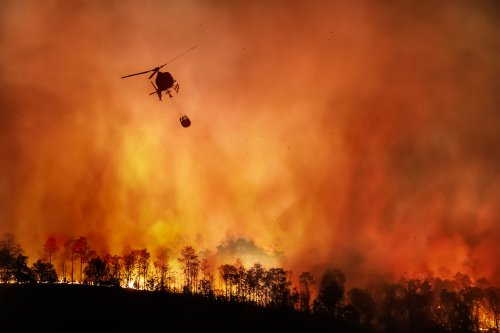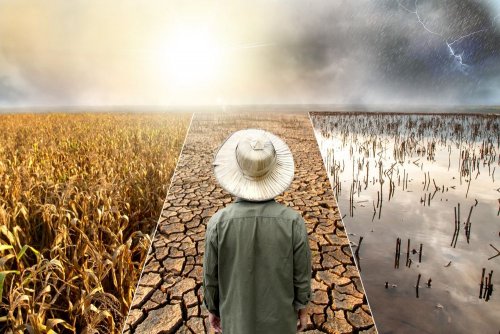Due to climate change in Norway near the Sogne Fjord, locals have started growing vineyards far beyond the latitude of 30-50 degrees, which is traditionally considered optimal for wine production.
Thus, the Norwegian winemaker Bjorn Bergum grows grapes at latitude 61 degrees north of the equator, according to the BBC.
Climate change is moving vineyards north and south as “cool climate constraints” have moved closer to the poles.
Slinde Vineyard, which Bjorn runs with his partner Haldis, is on the farthest edge of these new frontiers. Located near Norway's longest and deepest fjord, the Sogne Fjord, which no longer freezes in winter, vines grow on the sun-catching slopes overlooking the snow-capped mountains.
However, such activities require hard work and dedication when the frosts come.
Bjorn said he was working with a variety of grapes to create blends with tropical notes and mineral elements that he said came from clay soil.
Also in Norway, there are certain advantages for winemakers, namely the special quality of light. In addition, the grapes receive the sun from the glare from the fjord on the steep slope of the hill.
"So grapes and leaves take on a lot of aroma and absorb them, and we take them out again to make good wine," explains Bjorn.
However, he noted that people are biased towards Norwegian wine.
“We have people telling us,‘ Don’t tell anyone, but I’ve never tasted that kind of wine. It's really good - perhaps the best I've ever tried. "But they don't dare talk about it when they return to Germany or other countries, because I think they want to reconcile with society in wines, and then not very it's good to say that they tasted really good Norwegian wine," says Bjorn.
The winemaker also said that he has already won gold medals at Norwegian wine competitions and wants to receive international awards. However, he fears the prejudice of judges and hopes only for "blind judging".
Within a radius of 20 km from Slinde Vineyard there are 5 more manufacturers.
Although climate change may enable producers in previously unknown territories, it poses a serious problem for regions of the world where wine is traditionally produced.
"We've had three spring frosts in the last five years since I've been here. And it's probably not been 20 or 30 years before. So these extreme climates seem to be getting more common." says Sally Evans, owner of Chateau George 7 in Fronsac, Bordeaux.
She says the global rise in temperature can also be tasted in a glass of wine.
"When you have higher temperatures, the fruit ripens and the grapes have a lot more sugar, which gives higher levels of alcohol during fermentation. Alcohol in wine is likely to have increased by about two degrees over the past 30 years. Sun and heat also affect wine acidity "- explains Evans.
Hot, dry summers can also worsen the taste of fruit, she says. However, winemakers are adapting to new conditions. They use new varieties and methods of caring for vines.
However, both consumers and producers will have to admit that some of the recognized wines will be different in the future.
"What is typical in 30 years may not be worse in terms of quality - maybe even better, but it may not be like wine now," says Evans.
It will be recalled that Ukraine is facing a critical decline in productivity due to climate change.
As EcoPolitica reported earlier, Kuwait's major oil exporter is becoming uninhabitable due to the heat.





